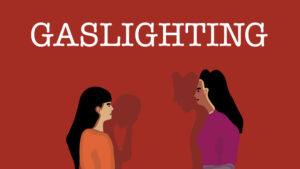What is gas-lighting?
Gas-lighting is a form of psychological or emotional abuse and different techniques designed to get control of another person. The person who is doing the gas lighting repeatedly or challenges the realization of their victims off-kilter and make them question themselves. For example the gas lighter might use their ADHD diagnosis against them.
What are some gas-lighters behavior?
Some of the gas-lighters behavior may tell their partner that you didn’t see or hear something, telling you that other people think you are crazy, putting people against you and obsessively accusing you of cheating. A gas lighter may also tell their parent that they do not need to take their ADHD medication because your partner knows better than some doctors do.
What are the signs you should look for if you are being gas lighted?
Being subjected to gas lighting it’s important to look for the signs and ask yourself any of the following statement
-You doubt your feelings and reality: You try to convince yourself that the treatment you receive is not that bad or that you are too sensitive.
-You question your judgment and perceptions: You are afraid of speaking up or expressing your emotions. You have learned that sharing your opinion usually makes you feel worse in the end, so you stay silent instead.
-You feel vulnerable and insecure: You often feel like you “walk on eggshells” around your partner, friend, or family member. You also feel on edge and lack self-esteem.
-You feel alone and powerless: You are convinced that everyone around you thinks you are “strange,” “crazy,” or “unstable,” just like the person who is gas lighting you says you are. This makes you feel trapped and isolated.
-You wonder if you are what they say you are: The person who gaslights you says words make you feel like you are wrong, unintelligent, inadequate, or insane. Sometimes, you even find yourself repeating these statements to yourself.
-You are disappointed in yourself and who you have become: For instance, you feel like you are weak and passive, and that you used to be stronger and more assertive.
-You feel confused: The behavior of the person gas lighting you confuses you, almost as if they are Dr. Jekyll and Mr. Hyde.
-You worry that you are too sensitive: The person minimizes hurtful behaviors or words by saying “I was just joking” or “you need thicker skin.”
-You have a sense of impending doom: You feel like something terrible is about to happen when you are around this person. This may include feeling threatened and on edge without knowing why.
-You spend a lot of time apologizing: You feel the need to apologize all the time for what you do or who you are.
-You feel inadequate: You feel like you are never “good enough.” You try to live up to the expectations and demands of others, even if they are unreasonable.
-You second-guess yourself: You frequently wonder if you accurately remember the details of past events. You may have even stopped trying to share what you remember for fear that it is wrong.
-You assume others are disappointed in you: You apologize all the time for what you do or who you are, assuming people are let down by you or that you have somehow made a mistake.
-You wonder what’s wrong with you: You wonder if there’s something fundamentally wrong with you. In other words, you worry that you are not well mentally.
-You struggle to make decisions because you distrust yourself: You would rather allow your partner, friend, or family member to make decisions for you and avoid decision-making altogether.
How to deal with gas-lighting
If you are a women with ADHD and knowing how to deal with gas-lighting and what to say to a gas-lighter can help you navigate this web of confusion and find yourself again. Here are seven tips to handle the situation and how not to react to gas-lighting:
Determining If It Is Gas lighting – Determining if you are being gas-lighting maybe subtle You may even wonder if gas lighting can be unintentional. A behavior might be gas-lighting if the person’s words or behaviors:
happen consistently and across situations
make you doubt yourself
negatively impact your feelings of self-worth
It can be helpful to know that a gas lighter likely has a deep-seated need for control. Recognizing this is often the first step toward gaining understanding that can help you cope.
Take note of Your Situations- The top goal of the person gaslightng you will question everything you do and say so taken note of your situation or conversations is an effective way to handle gas-lighting, But having evidence ready could give you more confidence in your recollections of exchanges and events.
Be kind to yourself – Being gas-lighted can drain you mentally and physically. To help reduce the stress from experiencing gas-lighting, consider focusing on self care activities like hobbies, learning new things, and socializing with friends. Even taking a walk to get away from the situation can be an act of self-care. Caring for yourself might also include taking a close look at the relationship and deciding if it’s something you want to continue.
Create Boundaries- Creating boundaries with dealing with a gas-lighter is extremely important. You can try to limit your conversations with the person or walk away when they start to use phrases that make you feel doubt or anxiety.
Distance yourself – It is doubtful that a person doing the gas-lighting will change their behaviors unless they choose to. In this type of situation the only option left when trying to handle gas-lighting is to create distance between you and them whether it’s temporary or permanent.
